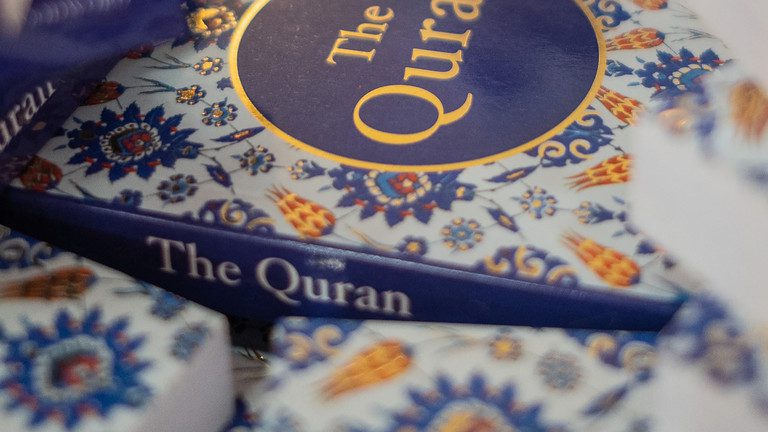World
A ban on Quran-burning is implemented in an EU nation

After a heated discussion, the Danish parliament on Thursday enacted a measure that forbade the burning of sacred writings like the Bible, Torah, and Quran. Offenders risk penalties or a maximum two-year jail sentence.
A writing that has significant religious significance for a religious community or an object that appears as such may not be treated inappropriately, either publicly or with the intention of spreading it to a wider audience. This includes destroying, destroying, stepping on, or chopping up such scripture. There is an exemption for works of art where destruction constitutes “a minor part.”
In a statement to the Folketing (Parliament) last month, Justice Minister Peter Hummelgaard praised the move as a much-needed “protection against the systematic desecrations we have seen for a long time,” stating, “We must protect the security of Denmark and Danes.”
In the four hours of debate that preceded the 94-77 vote, lawmakers from both left- and right-wing parties united to demand a referendum on the issue. They denounced the legislation and the three-party coalition that had introduced it, demanding that the “cowards” who had drafted it stand up to defend it.
Does Iran amend its laws in response to Denmark’s perceived slight from an Iranian? Does Pakistan? Does Saudi Arabia? Following the bill’s passing, radical Socialist People’s Party lawmaker Karina Lorentzen posed a rhetorical question in a statement. “The answer is no,” she said.
Inger Stojberg, a delegate for the right-wing Denmark Democrats, agreed that the law was a surrender to Islam and to nations that “do not share [our] set of values,” and he cautioned that “history will judge us harshly for this and with good reason.”
Queen Margrethe must sign the new law in order for it to go into force; this formality is anticipated later this month.
According to Hummelgaard, Danish police documented more than 500 demonstrations involving Quran desecration between July and November. The protests, which were staged in front of mosques, Muslim embassies, and immigrant communities, sparked a global uprising and negative diplomatic repercussions.
In January, Türkiye called for the Danish ambassador, calling Copenhagen’s actions “unacceptable” and claiming that it had allowed a “provocative act which clearly constitutes a hate crime.” It issued a warning, claiming that such demonstrations in Sweden, a neighbour, had severely damaged that country’s prospects of joining NATO.
The contentious prohibition on burning the Quran, which was formerly thought to be a legally protected form of free speech, was first put forth in July as an extension of the ban on burning foreign flags.
The government issued a warning that the protestors’ activities may have “significant consequences” for Danish security, even though it maintained that it had no intention of restricting the right to free speech. The provocative protests have increased the possibility of terrorism, the intelligence agency PET said.
